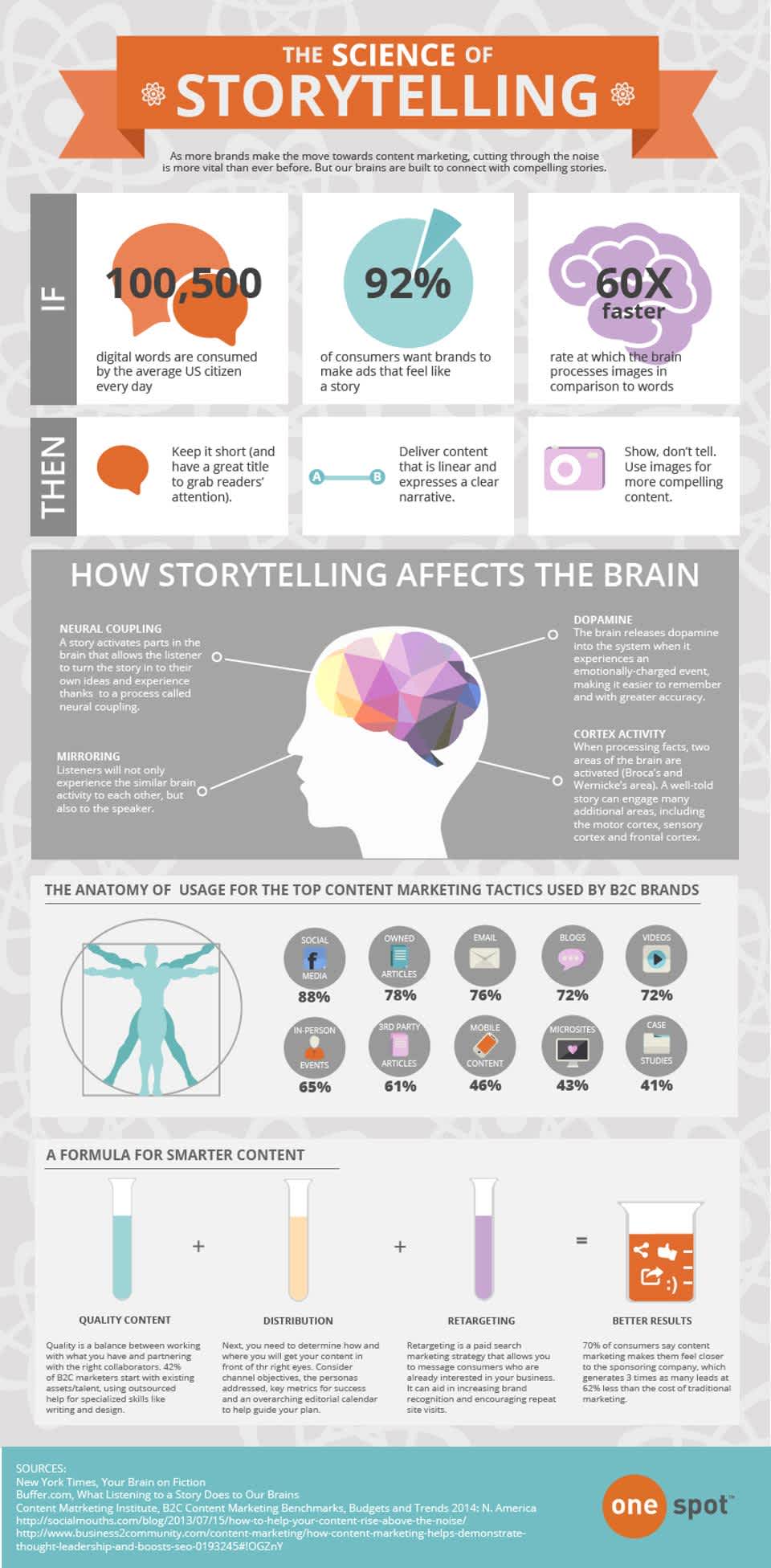//
Jan 10, 2018
How to Add Value to Your Brand Through Corporate Storytelling
As a little kid, I’m sure you remember your parents reading you bedtime stories.
While it was an effective way to convince your mom and dad to stay up past your bedtime, it was so much more than that. With each story, your fascination grew and your imagination ignited. When properly executed, corporate storytelling isn’t much different. It evokes emotion, inspiring and influencing readers.
The most successful brands understand the power of a good, strong story and how it affects their bottom line. Whether you’re writing a blog, posting to social media or creating a 30-second ad for TV, you should be telling a story. No matter the medium, it’s important to keep the story consistent across all channels. You want your audience to know it’s your brand, your voice, your story, no matter where, or how they hear it.
WHAT EXACTLY IS CORPORATE STORYTELLING?
The definition for corporate storytelling is actually quite simple–it’s the message your company wants to share with the world. As with any good story, it elicits emotion. It makes your audience feel something that inevitably will influence them to remember your company. Enthralling stories draw emotion out of us and, in B2B marketing, .
That sounds simple enough, right? Not quite. Determining the story you want to tell the world can be a long and grueling process. You can’t just pick a topic out of a hat and run with it. It has to reflect the personality of your company. It has to hold value in the hearts of your employees, and it has to be unique to your brand. There are a lot of great stories out there, the trick is writing the perfect one that conveys your company’s culture.
RELATED:
THE EFFECTS OF STORYTELLING
For those who like to see the cold hard facts, this infographic describes how storytelling affects the brain. To summarize, a well executed story can engage the various areas of the brain, including the sensory, motor and frontal cortex. The brain also releases dopamine when it experiences an emotionally-charged event. And emotionally-charged events are easier to remember. When you tell a story that resonates with your audience, it is remembered, and is associated with your brand.

WHAT COMPONENTS MAKE FOR A GREAT STORY?
We’ve already discussed one of the components that make for a successful story–evoking emotion–but let’s detail a bit more, all the factors that go into strong corporate storytelling.
THE FIVE C'S
- Circumstance - When writing your story, be sure to set the scene to lay out the information that will provide the premise. It’s important not to give too much away at the beginning because, chances are, you’ll lose most of your audience.
- Curiosity - People are naturally curious. We’re always wanting to know more, so long as what we’re learning is interesting. When it comes to storytelling, take advantage of that innate human trait and your audience will continue on the journey with you. Remember though, if you give too much away too soon, you’ll lose them.
- Characters - Give your audience a character, or characters that are sure to be relatable to them.
- Conversations - You have characters, now you need the interaction between those characters to elicit a reaction from your audience.
- Conflict - We live in an imperfect world and your story shouldn’t suggest otherwise. In life there’s conflict. Portraying that in your story can be very powerful.
RELATABILITY
Make the story relatable to everyone. Your target audience isn’t one specific type of person. When it comes to corporate storytelling, your audiences reaches across a wide demographic. Be humble, don’t take away from your message by forcing information that isn’t pertinent to the story.
SPEAK TO THE AUDIENCE’S EMOTIONS
As mentioned before, emotion is what sells stories. Our emotions tend to dictate much of life. Find a way to leverage your audience’s emotions to lead them through your story. Pick an emotion you want to spark and create your message around it.
ENGAGE THE SENSES
Throughout your story, appeal to the senses of your audience. Create a picture in their mind that brings them back to a time where they can relate to your message. But, this is one of those times where too much of a good thing can hurt your story, rather than help. Don’t overdo it.
TRIM THE FAT
Don’t overload your story with unnecessary information that doesn’t pertain to the main message. Keep it direct and impactful.
RELATED:
Your corporate storytelling could be the difference between moving ahead or falling behind your competitors. An emotion-packed, engaging and relatable story gives your company . People will be more inclined to remember you if the story you are sharing ignites an emotional response, whatever emotion that may be.
Dive into Inbound marketing with Watermark

About Watermark:
As a in Denver, we strive to captivate your audience and elevate your brand through Smart Design and Creative Solutions. We believe marketing is a collaborative effort, achieved by practicing agility and working cohesively with your team, not for it. Using data-driven solutions, we implement the best practices necessary to help your business exceed KPIs.
today to set up a discovery workshop.







